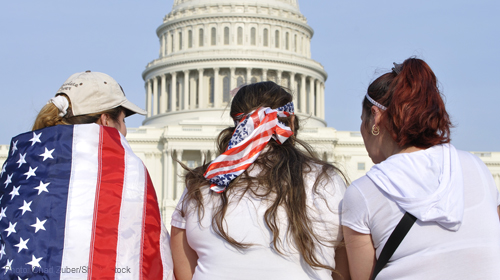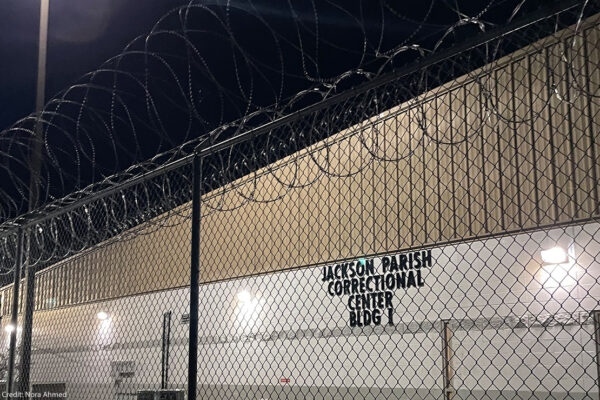
This past weekend's Fourth of July holiday made me nostalgic for the Independence Day celebrations of my childhood.
My parents are immigrants from Iran, and the Fourth was a big deal. We would barbeque kabob and rice at the beach in San Diego and watch the fireworks, lying side-by-side on the grass. It was celebration of freedom in the county that had welcomed my parents when they needed refuge. They were graduate students here in 1978 when violence broke out in their homeland, and my grandparents begged them not to return. Many of their friends were killed or disappeared; others sought asylum in Europe.
The phenomenon of people fleeing violence and parents making hard choices to protect their kids is nothing new. That is the exact dynamic that is playing out at our Southwest border today. The arrival of tens of thousands of young migrant children, many of them travelling alone, mirrors the escalating violence in their Central American homelands. El Salvador, Honduras, and Guatemala are among the countries with the five highest murder rates in the world. So it's no accident that since last October alone some 52,000 unaccompanied children have arrived in the United States, mostly from Central America, according to the government.
How we as a country choose to deal with this humanitarian crisis says a lot about our values and who we are as a people. There are no simple solutions, but the hostile response by some in the small community of Murrieta last week isn't one that should be repeated. Federal officials flew 136 of the detained migrants who had been apprehended at the Texas border to San Diego, where they were put on a bus to a border patrol facility in Murrieta for processing. A throng of angry local residents waited outside the facility, holding disparaging signs, telling the migrants to go home. But by the week's end, protesters spewing hate were outnumbered by others who had come to show support for the migrants.
The actions of extremists should not overshadow the humane response of most Americans, who have offered the kind of welcome my parents received. Faith groups and community organizations in San Diego and around the country have jumped at the opportunity to help the unaccompanied child migrants by donating time, services, and basics necessities like clothes, diapers, and food.
Children of immigrants often speak of winning the birth lottery because we know how randomly lucky we are to live here. But for the children fleeing Central America right now, this crisis is not like playing the lottery; it's more like Russian roulette.
There are the kids who will end up dying in the desert from heat and exhaustion. There are those who are stranded alone in a Mexican shelter because they were turned away at the U.S. border. Others are housed for weeks in Border Patrol holding facilities, sleeping on crowded floors, shoulder to shoulder. Many will be put on a plane and deported right back to the country they fled in fear of violence and persecution.
Let's remember that the United States has a system in place to ensure that every child arriving on our shores can ask for asylum or otherwise seek protection. The government should not pervert that system for the sake of expediency, nor should it shrink the protections available to these young migrants, as it seems to want to do. Massive deportation of children is not in the American tradition.
In honor of the Fourth of July we just celebrated, the holiday of freedom, kabobs, and fireworks, let us not push away children who didn't win the "birth lottery" without at least giving them a chance to make their case.
Learn more about immigrant deportation and other civil liberty issues: Sign up for breaking news alerts, follow us on Twitter, and like us on Facebook.


